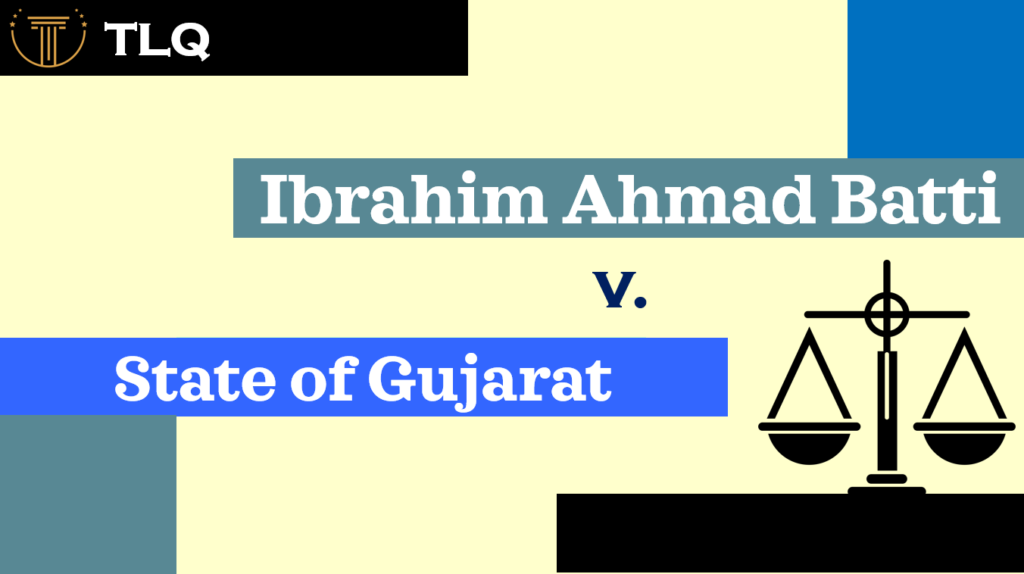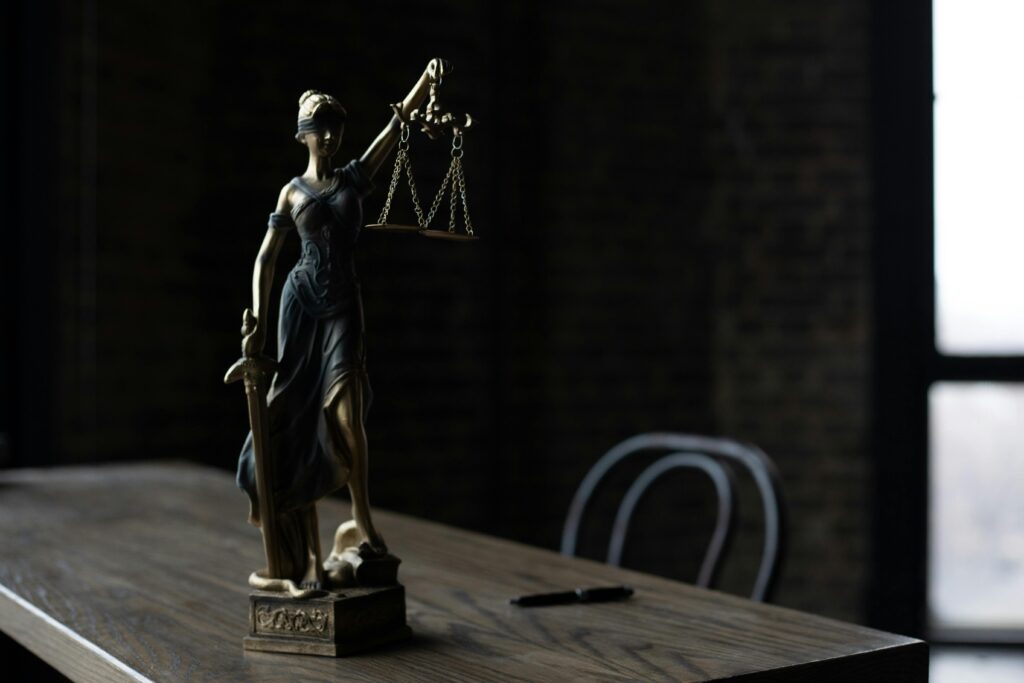Published On: 13th August 2025
Authored By: Ayaan Siddiqui
ST. Xavier's University Kolkata
The formal legal dispute between social reformers and spiritual leaders and the British colonial governance in Bombay culminating in 1862 is shown by the representation.
In 1862, the British management of spiritual disputes and journalistic criteria was where history was established at Bombay under British law. In Bombay district court during 1862 stood the defendant, Karsandas Mulji, against Jadunathji Brijratanji Maharaj. On the agreement of multiple observers, the trial was the biggest courtroom battle to have taken place around the world in its time. When the guru conducted the Charan Seva religious ritual, female disciples of the guru accused him of sexual assault. Even while both the judges had to depend on the media to make decisions that would be considered fair, the event demanded that the judges show respect for religious practices. As such, it influenced Indian legal progress along with societal establishment at a permanent level in all its future history.
Background
During the mid-19th century, the British Mumbai Authorities struggled to overcome the ideas of the western liberty from the Indian cultural traditions. Printing technology and new intellectual ideas were the result, and the first Indian citizens who acquired English language skills were those. Brahmo Samaj and Prarthana Samaj had to organize opposition against the worship of religious idols alongside the practice of child marriages according to traditional Indian practice. For them, newer Indian generations resisted religious conventional ways because they found such ways morally unacceptable. When the multiple mental patterns came into existence, then the revolutionary epoch gave rise to the dispute between traditionists and the advocates of novelty.
Vallabha Sampradaya was with out much opposition thereby being the worship tradition that established itself early on as the worship tradition of following traditional Vaishnavite rituals and of worshipping Lord Krishna. Maharajs of the Pushtimarg sect spiritually guided people of that sect, and the common people of that sect are of the opinion that their sacred power had divine qualities. During the 1860s, many Maharajs throughout India focused their spiritual leadership activities on solely Bombay to guide tens of thousands of their believers. Believers esteemed their spiritual leaders, but at the slightest unethical or wrong move on their side, the believers sharply condemned them. Without scriptural knowledge transferred to them from their position of respect, or misused by a great many spiritual leaders. According to worshippers’ reportages, spiritual guides use money collected from donations to buy luxury goods, and practice misconduct against the religious way aginst the standards of inside worship space. People in Bombay social network groups openly protested against religious deception alongside immoral conduct from spiritual leaders, and acted if possible chances arose.
Key Players
During the period 1875, Karsandas Mulji published Satya Prakash, which was the advanced reform social movement base in Bombay. His time at Elphinstone College in Bombay, where he taught, made him aware of the English liberal beliefs and he won himself to better societal alterations. At the age of 23, he began the magazine Satya Prakash in 1855 which showed the public social issues and also against the immoral religious practices. Having written during the late 1850s publications that promoted modern society, Mulji displayed lack of respect for religious customs. Because he felt that his Hindu belief was being jeopardized, along with other devotees of his faith, Mulji set himself in opposition to deceptive Pushtimarg clergy action. New Indian journalists such as Mulji at this time attempted to employ their firm convictions to enforce powerful people to hold moral obligations. Before leading the religious movement as the main leader, Jadunathji Brijratanji Maharaj is considered to have been the head spiritual authority over many Pushtimarg Vaishnavs, which meant that umlahany devotees accepted Jadunathji as leader of the people, given the fact that he proclaimed himself the inheritor of Vallabhacharya in Pushtimarg. More of his followers observed his spiritual happening and were all ready to support his religious advice on any spiritual problem. Charanseva become the place where devotees of the teaching worshipped by fully surrendering themselves to their spiritual leader in foot service. To realize his sexual gains through religious practices, Jadunathji used Charanseva (a scheme) among his female worshipers. As a spiritual director, Jadunathji enforced complete freedom to act without any charges against his behavior. The leader decided not to embrace new methods because he protected the usual religious morals as they were brought by Mulji. Mulji was threatening to Jadunathji as the leader used the public forum to make open criticisms of his religious position.
Mulji considers that this person shared the published articles and he is therefore filing legal proceedings against Nanabhai Rustomji Ranina. For both Thomas Anstey and Lyttelton Bayley trial was with the court proceedings coupled with a religious argument to speak on behalf of the defendants. After that, the legal trial was carried out with Sir Matthew Richard Sausse and Joseph Arnould acting as court judges, though Justice Arnould was the main leader. Their dialogues hold intense opposition and the leading figures in the courtroom.
Legal Claims and Arguments
In 1861, the month of last, Mulji published insults for which Maharaj started legal libel proceedings. Maharaj distinguished the printed criticism as an attack on his personal reputation and defended against all religious implications. If such religious insults are unrestricted, they may mischief the Brahmin belief in all parts of India, Bayley warned. The plaintiff Mulji acted contrary ethically when on several times when she engaged in destructive assaults on the communal devotion structure as well as the religious dominance roles that the Maharaj held. Colonial brigadier courts had never seen the case because they had to ascertain whether the criticism of spiritual leaders could be regarded as unlawful defamation.
Mulji’s defenders asked for the right to make public information for which they wish to communicate. As a journalist it was his responsibility to reveal these illegal activities masquerading as such religious projects. Anstey says the court must be blind of religious beliefs and The Maharaj has got to show that two statements were both lies and based in actual faith. Justice Arnould announced that he would determine whether standards in the community rather than religious principles apply. Descriptions of Jadunathji’s immoral conduct were contained in the article, but they were indecent; therefore, they provided essential knowledge, yet without breaking libel regulations in any way. The strategy was revised to allow full seek of real Maharaj behavior by each event. The trial had provoked such high expectations because freedom of the press and the superior position of Jadunathji as leader had been awaited to rid us en bloc.
The Trial Drama
By January 25, 1862 at Bombay Town Hall where the event was held, a legal drama had become the reality. Then the courtroom proceedings were carried out in front of Town Hall by the public that gathered there on the pillars and staircase. The continuous running of the court case through Indian media outlets had all declared that that is the most dramatic show during that era. A meeting of the community members were deliberately organized by Jadunathji Maharaj using such power before the legal proceedings could start so that Bhatia members remained mute. Any person who upset justice was charged with criminal offenses according to the laws of India. Immediately after the testimonies of persons who had tried to obstruct Jadunathji were analyzed by a group of trial judges, financial penalties were imposed on them. Court observations made the Indian population aware of the degree of immoral conduct and deep enmity of the followers of the Maharaj and their leader Satan. The first verdict was a major element in increasing the drama of the main libel trial due to all built-up tension.
The information which was exposed in the proceedings of the court exceeded the humiliating boundaries. However, in order to verify the content Anstey requested witness testimony to verify that Jadunathji had exempted religion for the purpose of sexual pleasures. In addition to presenting their testimonies before the trial from Europeans and former members of faith groups that were also a part of Maharaj’s movement, there were European medical professionals. He gave his evidence in the trial as an audience to hear his role as an exmember and the evidence from him that money was needed to settle to learn the Maharaj sleeping with one short of another man’s married woman. Two medical experts also stated that the Maharaj had venereal disease, which placed public health in jeopardy. Years of disruption to the legal process took place due to the court during the proceeding hearing the personal details of the Maharaj.
Any discussion of religious disputes was replaced by defense system that described immoral behavior. The defense stated that revealing of unethical religious leader behavior towards followers would not be harmful since his immoral acts had failed community ethical standards. The entire trial was observed completely from behind by Mulji, who sat calmly amongst his supporters, but they held strict posture as they did not move an inch. Initially, Jadunathji Maharaj refused to be presented before the public spectators. In March 1862, Jadunathji would not take an oath on holy books in answering questions on the basis of his own mind. It was only when the British court got confusing responses from Jadunathji in court that they saw him as a parody to the normal ethical standards and truth values. The prosecutor’s claims never gained the whole 19 days of the judicial proceedings on Mulji’s account. The ultimate conclusion of the court was expected to launch fresh legal guidelines for people.
Verdict
By 22nd April, 1862, Justice Joseph Arnould was the first critical ruling directly of the trial. The Maharaj failed to prove his accusations against the defendant, and the defendant was on the winning side of Judge Joseph Arnould. Consequently, the court decided not to include religious principles when it ultimately passed the ruling in Mulji vs Jadunathji. It is a question of morality… Divine law does not approve immoral deeds. The case is very clear with all considered evidence from the case, in which the court stands by Mulji because he provides factual information for public benefit. The rule that all leaders including the religious persons must submit to secular law requirements as well as moral standards was enforced in the colonial court systems. The ongoing judicial procedure was also terminated by Chief Justice Sausse and his other fellow judges from the court panel.
In establishing such a legal requirement, the court required Jadunathji Maharaj to pay full reimbursement to Mulji of Rs. 11,500 paid to the court there. Although they failed to legally succeed on their case against Jadunathji Maharaj, the court ordered financial restitution for the reformers. The decision was duly made known to every member of the reformist communities as everybody in the courtroom could hear their loud festivities. Then after many years of court hearings, by dint of his own industry, Mulji Karsandas succeeded in overruling powerful religious authorities and ultimately prevailed in court. According to a fundamental court decision people at any position must comply with legal requirements.
Implications
Several new developments that did follow after the conclusion of Maharaj Libel Case during the time the court decision was ruled on. This court decision began a historic period during which publishing occurred intertwined with reforming in the earliest time of Indian publishing history. After the trial, many said Mulji to be a champion of defence for India and Indians as a Martin Luther was a defender of religious organizations. Thus the Indian newspapers that reported on court updates changed both legal limits for media institutions and sacreds of the whole country. However, during this court decision, the judges showed through what they decided to they had the ability to further social advancement. Although prescribing the methods in which Indian news media can reveal welfare problems in the country, the court has already set clear parameters for Indian news media rights. Mulji’s example on the other hand motivated newspaper reporters and insiders to bring into exposed social issues besides the already established customs as important part of their professional news exposure activities. Pushtimargis and its associates interpreted the judicial decision as a basis with which one can analyze past practices. Its verdict being delivered, yet the supporters of Jadunathji opposed the court. Each group did reflection of their outsides to see their conduct. Maharaja decision making brought colonial judge involvement in Maharaja decision making and hence the religious community lost its way of protection through faith. When their spiritual actions did not satisfy both ethical and legal requirements, religious leaders knew that they need to accept professional results. Different groups started being asked by the members of society to operate better and by the same time better manage. But through actual proof minutes, faithful practice of religion does not protect a person.
This perfect settlement of the matter met with the satisfaction of British colonial officials. Both English and Indian legal jurisdictions shaped the decisions made by the judges and the judgment was directed by the English libel legal guidelines. Mulji was selected as the preferred choice of the court since this decision fell in line with the British attempt to downsized the organizations that opposed colonial administration. British authorities designated a couple of reformers to identify social problems to the British public and reduce the local authority figures. The case of Maharaj Libel revealed that the legal system is in a position to settle a social problem through the will of colonial power as the legal system could not do so in the absence of colonial power.



